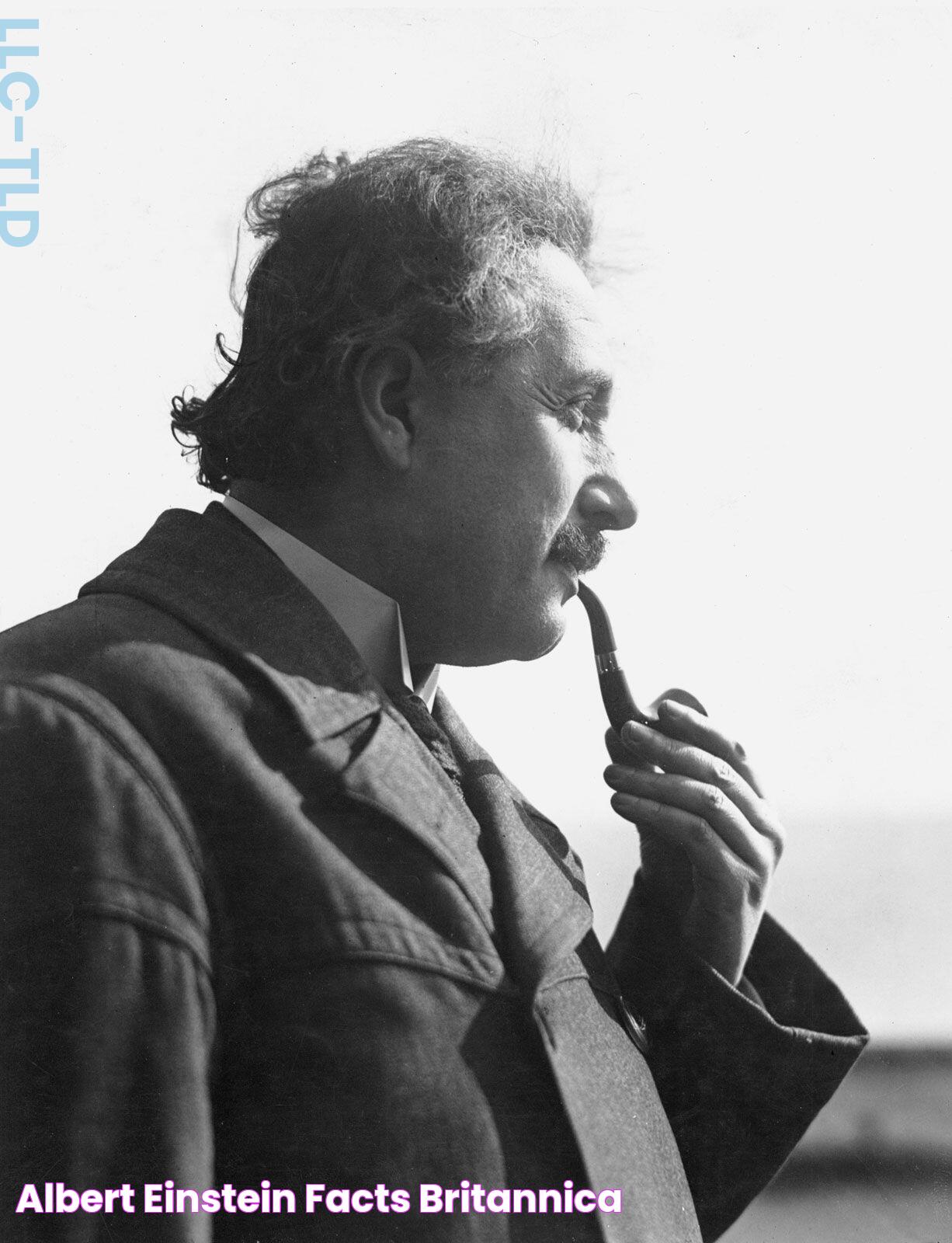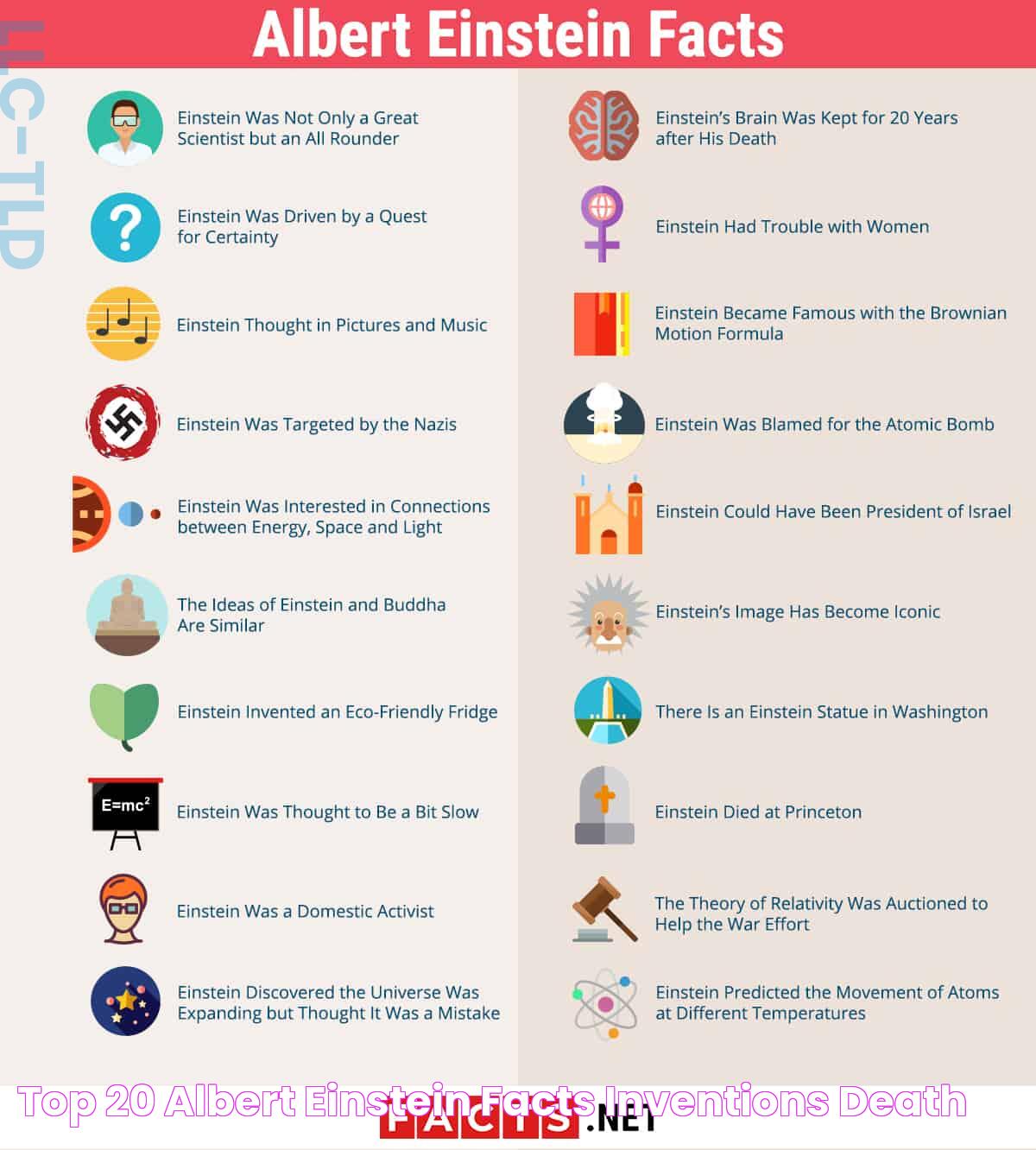Albert Einstein, one of history's most iconic and influential figures, continues to inspire generations with his revolutionary ideas and profound contributions to science. Known as the father of modern physics, Einstein reshaped our understanding of the universe with theories that defied conventional wisdom. But beyond the scientific achievements, his life was also filled with intriguing stories, fascinating quirks, and remarkable anecdotes that reveal the human side of this extraordinary genius.
From his groundbreaking theory of relativity to his advocacy for peace and civil rights, Einstein's legacy transcends the boundaries of science. His life's work not only expanded the horizons of physics but also left an indelible mark on philosophy, art, and popular culture. Despite his towering intellect, Einstein was known for his humility, wit, and childlike curiosity, making him a relatable figure to millions worldwide.
This article delves into the lesser-known facts about Albert Einstein, exploring his personal life, scientific breakthroughs, and the intriguing moments that shaped his journey. Whether you're a science enthusiast or simply curious about one of history’s greatest minds, this comprehensive guide will take you through the many facets of Albert Einstein's life and legacy.
Read also:Arnel Pineda Married A Dive Into His Personal Life And Career
Table of Contents
- Albert Einstein’s Biography
- What Was Albert Einstein’s Early Life Like?
- Albert Einstein's Educational Journey
- Einstein's Major Scientific Contributions
- Why Did Albert Einstein Win the Nobel Prize?
- Albert Einstein's Personal Life
- What Were Einstein’s Quirky Habits?
- Einstein’s Political and Social Beliefs
- Einstein’s Humanitarian Efforts
- How Did Einstein Influence Pop Culture?
- 10 Fun Facts About Albert Einstein
- Albert Einstein’s Famous Quotes
- What Is Albert Einstein’s Legacy?
- Frequently Asked Questions About Albert Einstein
- Conclusion
Albert Einstein’s Biography
Albert Einstein, born on March 14, 1879, in Ulm, Kingdom of Württemberg in the German Empire, was a theoretical physicist whose work revolutionized the understanding of space, time, and energy. He is best known for developing the theory of relativity, which introduced the world to the famous equation E=mc².
Quick Bio Data of Albert Einstein
| Full Name | Albert Einstein |
|---|---|
| Birthdate | March 14, 1879 |
| Birthplace | Ulm, Kingdom of Württemberg, German Empire |
| Nationality | German, Swiss, American |
| Profession | Theoretical Physicist |
| Key Achievement | The Theory of Relativity |
| Awards | Nobel Prize in Physics (1921) |
| Date of Death | April 18, 1955 |
What Was Albert Einstein’s Early Life Like?
Despite his eventual fame, Albert Einstein’s early life was unremarkable. Born into a middle-class Jewish family, he was the son of Hermann Einstein, an engineer and salesman, and Pauline Koch. As a child, Einstein showed a deep curiosity about the world but struggled with structured education, often clashing with teachers due to his independent thinking.
Interestingly, a popular myth suggests that Einstein was a poor student. While he did struggle in some subjects, particularly language and rote memorization, his mathematical abilities were exceptional from an early age. At the age of five, a simple compass given to him by his father sparked a lifelong fascination with science and the mysteries of the universe.
Albert Einstein's Educational Journey
Einstein’s education was a rollercoaster of challenges and triumphs. He initially attended a Catholic elementary school but later transferred to the Luitpold Gymnasium. Frustrated with its rigid structure, Einstein dropped out at the age of 15 and moved to Switzerland, where he completed his schooling at the Aargau Cantonal School.
What Challenges Did Einstein Face in School?
While gifted in mathematics and physics, Einstein struggled with non-scientific subjects. His rebellious nature often put him at odds with teachers who valued conformity over creativity. Despite these challenges, his insatiable thirst for knowledge propelled him to excel in areas he was passionate about.
Einstein's Major Scientific Contributions
Albert Einstein’s contributions to science are monumental and include the theory of relativity, quantum mechanics, and statistical physics. His 1905 paper on the Special Theory of Relativity introduced groundbreaking concepts such as time dilation and length contraction, fundamentally changing how we understand the universe.
Read also:The Financial Triumph Of Susan Boyle Net Worth Biography And Legacy
What Is E=mc²?
This equation, derived from Einstein’s theory of relativity, states that energy (E) equals mass (m) times the speed of light (c) squared. It highlights the relationship between matter and energy and has profound implications in both theoretical physics and practical applications, such as nuclear energy.
Why Did Albert Einstein Win the Nobel Prize?
In 1921, Albert Einstein was awarded the Nobel Prize in Physics, not for his theory of relativity but for his explanation of the photoelectric effect. This work laid the foundation for quantum theory, influencing a wide range of technologies, from solar panels to digital cameras.
Albert Einstein's Personal Life
Einstein’s personal life was as complex as his theories. He married twice and had three children: Hans Albert, Eduard, and Lieserl. His relationships were often tumultuous, marked by periods of estrangement and reconciliation.
Did Einstein Have Any Hobbies?
Yes! Einstein was an avid violinist and deeply loved music. He often said that if he weren’t a physicist, he would have been a musician. Playing the violin provided him solace and inspiration throughout his life.
What Were Einstein’s Quirky Habits?
Albert Einstein was known for his eccentric personality. From refusing to wear socks to his disheveled hair, he embraced his individuality unapologetically. He also had an unconventional sense of humor and often used it to lighten serious moments.
Einstein’s Political and Social Beliefs
Albert Einstein was a staunch advocate for peace and civil rights. He spoke out against war, racism, and nationalism, using his platform to promote unity and understanding. His political views often made him a controversial figure, but he remained steadfast in his beliefs.
Einstein’s Humanitarian Efforts
Throughout his life, Einstein supported various humanitarian causes, including aiding Jewish refugees during World War II. He also co-signed a letter to President Franklin D. Roosevelt warning about the potential development of nuclear weapons, which led to the Manhattan Project.
How Did Einstein Influence Pop Culture?
Albert Einstein’s image has become synonymous with genius. From movies to cartoons, his likeness and quotes have been immortalized in popular culture. His playful personality and iconic appearance make him a favorite subject in art and media.
10 Fun Facts About Albert Einstein
- Einstein didn’t start speaking until he was almost four years old.
- He loved sailing but was terrible at it.
- He once declined the presidency of Israel.
- Einstein’s brain was preserved for scientific study after his death.
- He had a deep love for ice cream.
- Einstein’s second wife was also his cousin.
- He never wore socks, claiming they were unnecessary.
- His violin was named “Lina.”
- He failed the entrance exam to the Swiss Federal Polytechnic School on his first attempt.
- Einstein had a photographic memory and loved geometry.
Albert Einstein’s Famous Quotes
Albert Einstein’s words continue to inspire people worldwide. Some of his most famous quotes include:
- "Imagination is more important than knowledge."
- "Life is like riding a bicycle. To keep your balance, you must keep moving."
- "In the middle of difficulty lies opportunity."
What Is Albert Einstein’s Legacy?
Albert Einstein’s legacy is a testament to the power of curiosity, perseverance, and imagination. His contributions to science, philosophy, and humanity continue to resonate, making him an enduring symbol of intellectual achievement and moral courage.
Frequently Asked Questions About Albert Einstein
1. Did Albert Einstein fail math?
No, this is a myth. Einstein excelled in mathematics from a young age and even taught himself advanced topics before attending university.
2. What did Einstein say about God?
Einstein famously remarked, "God does not play dice with the universe," reflecting his belief in a deterministic universe rather than a religious deity.
3. Was Einstein a pacifist?
Yes, Einstein was a vocal advocate for peace, though he later supported the development of nuclear weapons as a deterrent during World War II.
4. Why is Einstein considered a genius?
Einstein’s ability to think outside the box, coupled with his groundbreaking theories and relentless curiosity, solidified his status as a genius.
5. Did Einstein invent the atomic bomb?
No, Einstein did not invent the atomic bomb. However, his equation E=mc² was a theoretical foundation for the development of nuclear energy.
6. Where is Einstein’s brain now?
Einstein’s brain was preserved for research and is currently housed in various institutions for scientific study.
Conclusion
Albert Einstein was more than just a scientific genius; he was a humanitarian, philosopher, and cultural icon whose influence transcends time and disciplines. By exploring the many facets of his life, we gain a deeper appreciation for the man behind the equations and the enduring impact of his work on our world.

